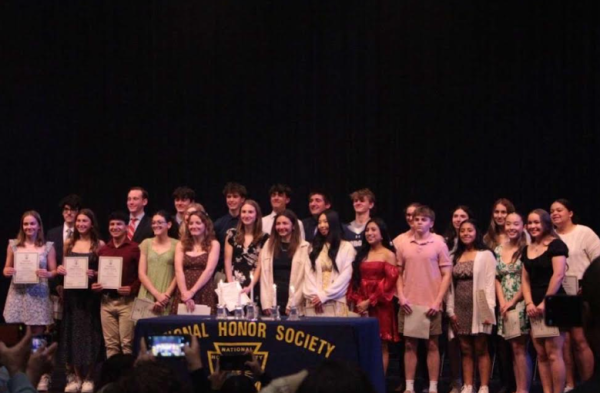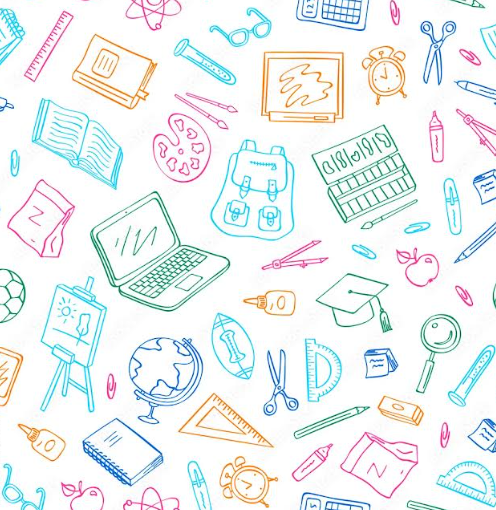With midterms right around the corner, many students from all around the country have started to feel anxious about their upcoming midterm exams. To help you out this exam season, the Pawprint reached out to a few kids at Morgan who have found success in past exams to share insights on the tips of an effective study experience and to reduce stress.
Create a balanced study schedule:
Study schedules are one of the most important factors when it comes to organizing your study time. According to Excelsior University, a study schedule can be defined as a “chart or schedule that allows you to block out time needed each day for well-defined learning activities, goals, and routine daily tasks.” Study schedules offer multiple benefits when it comes to performance, consistency, and discipline. It reduces stress, and leads to an overall boost in productivity.
Senior, Michael Derenzo, a scholar leader in the senior class, said, “On the weekends, I usually study after I wake up because it is when I have the most energy and the most focus. That is why getting a good night’s sleep is important when it comes to academia.” Derenzo’s study schedule is a long schedule, working from day to night. However, he follows the efficient standard by taking breaks in between and studying in short incriminates.

Where to study?
Senior Kasey Allin said, “The
hardest exam I have ever taken at Morgan was during junior year in AP Government and Politics taught by Mr. Zawadski.” Allin explained a few ways she used to study for the exam which helped her earn four out of five points on the exam. “I used a quizlet and kahoot a lot, which helped me a ton because it made studying much easier.”
According to Caduceus International Publishing, a company which provides high quality textbooks and curriculums to universities and colleges, says the purpose of notecards is about recalling information purely off of memory. This research implies notecards are a key factor in a useful session. Being consistent using notecards is also quite helpful since using notecards can help organize what information a student knows versus what they don’t know.

If a student goes back to the cards they don’t know they are far more
likely to remember the information on their upcoming exam, according to Idaho State University.
Allin added, “I also rewrote my notes from earlier in the year and watched youtube videos on units from earlier in the semester.” All these strategies helped Allin earn a 4/5 on what many students say is the hardest exam at Morgan.
Listen to your teachers:
P Government and Politics teacher, Mr. Zawadski, recommends studying for short periods over a long period of time. He explains, “It’s better to study for thirty minutes a day for a week than study for three hours the night before.” Zawadski also explains that “using the reviews made by teachers is one of the most important things to do because it is exactly what they will put on the exam.”
Junior Austin Borkowski, agrees. He believes that time management and procrastination are the biggest factors to a beneficial study period. Austin said, “Studying more than a week in advance is optimal, and it gives you time to learn, remember, and memorize material in all your classes.”
According to The American Psychological Association, study time matters. They argue that “decades of research determines spacing out study sessions over a long period of time improves long-term retention.In other words, if you had twelve hours to study for a subject, it wouldn’t be as efficient to study for all twelve hours than to study for two hour increments.”
Additionally, the University of Pittsburgh suggests beginning your studying 7-10 days before your test begins, arguing it is the best way to ensure you maximize your study time.
Balance your study time:
Junior Lena Flaherty, a successful student athlete, explained, “The best study strategy, for me personally, is looking back on previous tests. This technique is especially useful for weaker sections. It creates a balanced study time, and a productive environment.”
Another notable strategy from Flaherty is to create a strict study schedule in order to maintain efficiency and organization. Working from 8am and studying to 8pm, taking little breaks in between, is one of the best specific formats to follow for a schedule. This helps Flaherty especially because of her tight schedule involving sports.
This plethora of advice will guarantee help with grades on your midterm exams, reduce stress, and make it become an overall more enjoyable experience. Remember to work hard, stay focused, and put in 100% effort! Good luck!




